This Is For All The People Who Are Struggling But Just Keep Getting Up And Trying. The Ones Who Keep
This is for all the people who are struggling but just keep getting up and trying. The ones who keep showing up, day after day, even when they don’t want to. The ones who stare at the fridge, willing themselves to cook food even though they want to skip. The ones who get up and get water even when they’d prefer to ignore their own needs. The ones who keep on breathing, even when they don’t really want to, because they trust the day will come when the tightness around their hearts has eased.
this is for everyone, because everyone here today has kept on being. even on the days when they didn’t particularly want to. the hard days and the sad ones and the hurt ones, too. You are still here, trying, and this is a moment of recognition for all the beautiful work you’ve done.
Keep going, love. The light comes back.
More Posts from Sayaosi and Others
really love dynamics that are like 'it honestly doesn't matter if you view them as romantic or platonic, the point is that they love each other. the type of love is inconsequential, all that matters is that it's there'. gotta be one of my favorite genders.
Watched/read
Feminine and feminist cinema.
House of Hummingbird: the main character, Eunhee, was in eighth grade in 1994, which is to say she – and Kim Bo-ra, the director – are nearly exactly my age. It’s a sensitive, Proustian evocation of a ‘90s South Korean female adolescence, parts of which I relate to (those pagers!), parts of which I knew nothing about (one date chyron I won’t spoiler, that drew gasps from the audience), and parts of which are evergreen (dysfunctional Asian families where the only love languages are verbal abuse and food, and emotional support is non-existent even for favoured first sons). The sporadic outbursts of domestic violence, in particular, are so true to life as to be triggering; it made me think of people IRL to whom I’d only recommend the film with a warning. The actors are all very good but the one I’ll think back to is Kim Sae-byuk, who plays Eunhee’s mysterious yet relatable Chinese tutor and imbues the supporting character with a vast sense of inner life. The camera watches her face and you feel what she’s feeling for this girl, from the other side of the unidirectional gulf that is the Tired Adult™ looking upon an eighth grader much like she once was.
21st Century Girl: a thematic omnibus of short films commissioned from emerging female Japanese filmmakers, each of which has to be about love, gender, or sexuality in some way. One does what one can with the running time: some oblique love stories, some LGBT themes, some in media res snippets of what might eventually end up as feature-lengths with a beginning and an end, lots and lots of photographic montage and manifestos in voiceover. I liked “Your Sheet,” a gender-fluid erotic story that was also the most successful bit of standalone short fiction, and the rom-com concept of “Sex-less Sex-friends.”
Dare to Stop Us: for once I would have liked a Q&A session with the director and writer, because I have questions. The film is a dramatization of the late ‘60s-early ‘70s imperial period of Wakamatsu Studios, the “pink film” (experimentally x-rated, but also raging leftist pink-o) outfit founded by Wakamatsu Koji, an enfant terrible of Japanese cinema who used to be yakuza and purportedly turned to film so he could kill off cops without getting arrested. The main character is Megumi, a hippie girl who joins the studio at the age of 21 and works her way up to first AD within the year, not least due to the other ADs quitting. Megumi comes off as a designated-naif entry-point POV, possibly – I thought – a composite of women who worked for Wakamatsu, and the arc of her story seemed to bend toward surviving (gender-neutral) workplace hazing and becoming a successful indie director in her own right, as Wakamatsu promises when he hires her. Spoilers: she is not a composite! She existed, and what happens to her is gut-wrenching! It’s a rug-pull, honestly, especially since the director Kazuya Shiraishi worked with Wakamatsu and the initial vibe is “feel-good biopic of characters and environment I have huge nostalgic affection for.” In retrospect, one has to conclude he was half making that movie, half interrogating how the guerrilla filmmaking milieu can chew up the people who love it most, and is particularly unforgiving to women even when their bosses and peers aren’t overtly sexist.
(I also have questions about the slickly urbane portrayal of Oshima Nagisa, sitting in a cafe with his sunglasses telling Wakamatsu not to push his pro-Palestinian documentary too hard because the film world is “run by Jews,” because hoo boy was that a Moment.)
i just saw perfect days and i don't want a smartphone anymore. like, i genuinely don't want this thing anymore. i'm starting to think about all the times i've missed something beautiful existing in front of me because i felt the need to look down at my screen. how much time have i wasted getting quick hits of dopamine instead of getting true enjoyment from something as simple as the sunshine rippling through the trees? i'm wondering when my appreciation for real beauty met its death by way of an addiction to artificial blue light. there's no surprises or moments of amazement when you're constantly attached to the interwebs.
but i want to be surprised. i want to be amazed. i want to feel life again through my own skin, not another mindless swipe or tap.

“Beef” is about so many fucking things, but ultimately it’s about the hardship of being human, the ultimate disappointment and disillusionment that you go through year after year when things don’t go your way and you’re miserable or when everything goes your way and you’re still miserable. When you think you’re living life right but you’re still so fucking unhappy and NOTHING fills the void that spasms inside of you and and and because of this feeling, that life isn’t what you thought it was going to be, the rage pot boils and it boils over and it spills onto everything.
And fuck fuck fuck, it’s about two people who are so disconnected from everyone else in their life because of this feeling that the only person they connect to toxically is each other, because this rage is known, this misery is shared, and even though it’s so fucking destructive, at least it’s not lonely anymore.
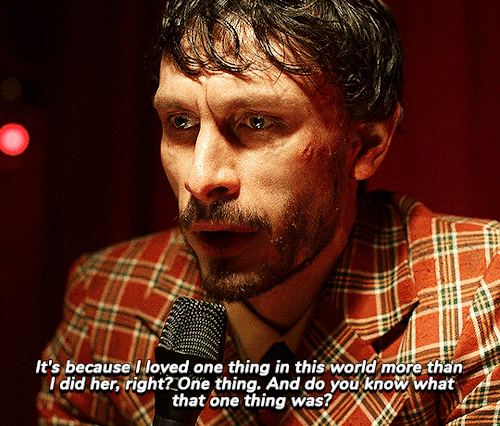


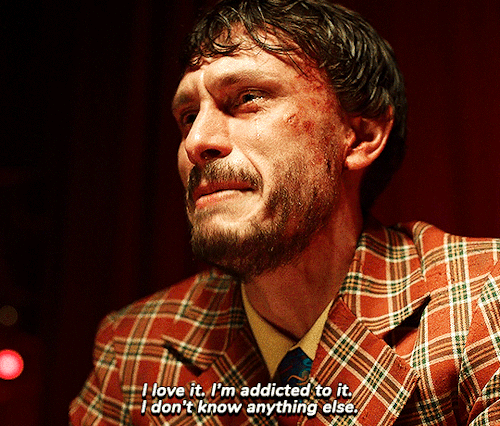



BABY REINDEER (2024) Episode 6.


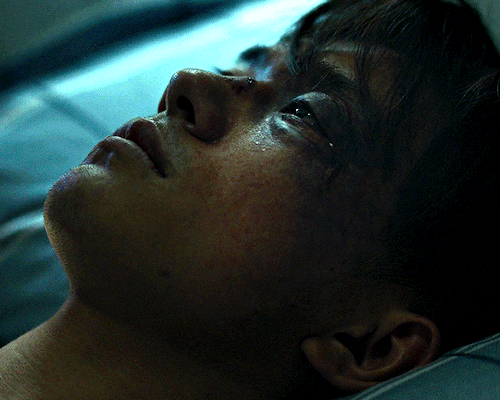
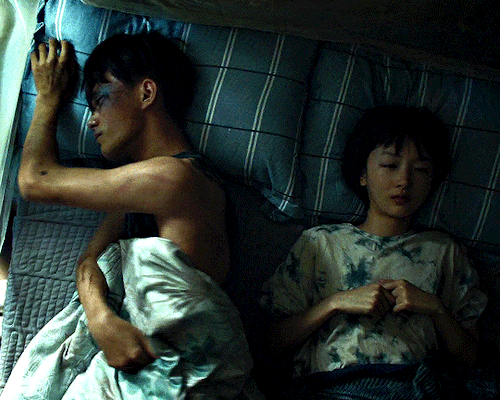

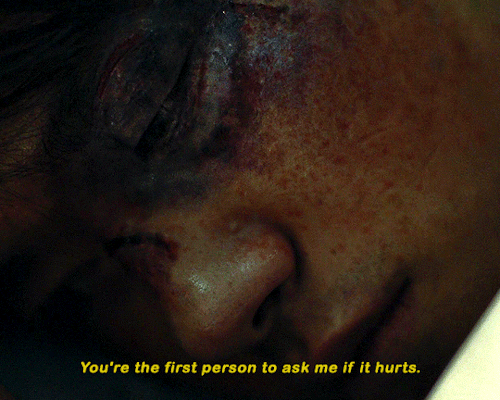
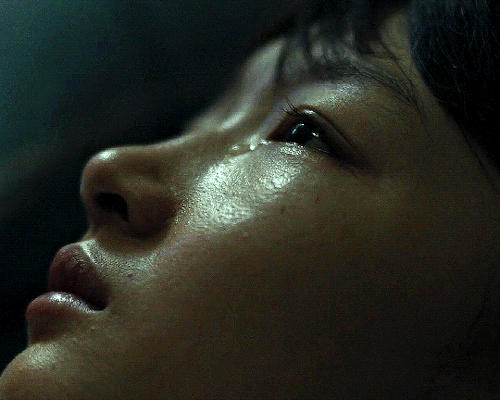

BETTER DAYS 少年的你 (2019) dir. Derek Tsang
The casual intimacy of being single, living by yourself, and drinking in the bath. Unparalleled.
"I'll stay with him!"Razumikhin exclaimed. "I shan't turn my back on him for a second, and to hell with all those guests of mine, let them climb up and down the walls if they want to!"
Razzy please you're too pure. An angel on earth










You think disaster just falls over the sky? No. We have come step by step towards this fate.
FAREWELL MY CONCUBINE 霸王別姬 (1993, Chen Kaige)





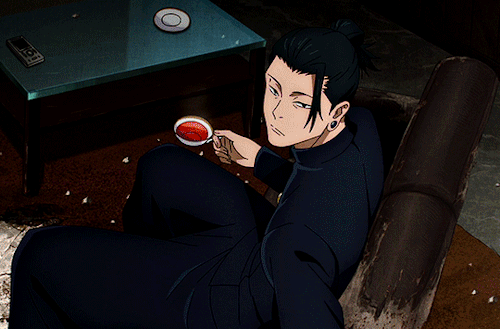
a man of culture 🫖
-
 aestheticemi01 liked this · 1 week ago
aestheticemi01 liked this · 1 week ago -
 aw-life-no reblogged this · 2 weeks ago
aw-life-no reblogged this · 2 weeks ago -
 lets-share-neen reblogged this · 3 weeks ago
lets-share-neen reblogged this · 3 weeks ago -
 thoolibul-ilm reblogged this · 2 months ago
thoolibul-ilm reblogged this · 2 months ago -
 norwegianne liked this · 3 months ago
norwegianne liked this · 3 months ago -
 anotherblogforborderlines reblogged this · 4 months ago
anotherblogforborderlines reblogged this · 4 months ago -
 anabananafofana reblogged this · 4 months ago
anabananafofana reblogged this · 4 months ago -
 anabananafofana liked this · 4 months ago
anabananafofana liked this · 4 months ago -
 astrobiojournal liked this · 4 months ago
astrobiojournal liked this · 4 months ago -
 ca-hoots liked this · 5 months ago
ca-hoots liked this · 5 months ago -
 craftyworx liked this · 6 months ago
craftyworx liked this · 6 months ago -
 caffeineyum liked this · 6 months ago
caffeineyum liked this · 6 months ago -
 do-do-doot liked this · 6 months ago
do-do-doot liked this · 6 months ago -
 the-reall liked this · 7 months ago
the-reall liked this · 7 months ago -
 stardusttshowers reblogged this · 8 months ago
stardusttshowers reblogged this · 8 months ago -
 artnerd1123 reblogged this · 8 months ago
artnerd1123 reblogged this · 8 months ago -
 conundrumrespeculis reblogged this · 8 months ago
conundrumrespeculis reblogged this · 8 months ago -
 autisicat liked this · 8 months ago
autisicat liked this · 8 months ago -
 starstruck-sapphic liked this · 8 months ago
starstruck-sapphic liked this · 8 months ago -
 autopsy-of-a-witch liked this · 9 months ago
autopsy-of-a-witch liked this · 9 months ago -
 sayaosi reblogged this · 9 months ago
sayaosi reblogged this · 9 months ago -
 sayaosi liked this · 9 months ago
sayaosi liked this · 9 months ago -
 lovabova liked this · 9 months ago
lovabova liked this · 9 months ago -
 trasheater3000 liked this · 9 months ago
trasheater3000 liked this · 9 months ago -
 unalive-creature reblogged this · 10 months ago
unalive-creature reblogged this · 10 months ago -
 bethanythestrange reblogged this · 10 months ago
bethanythestrange reblogged this · 10 months ago -
 bethanythestrange liked this · 10 months ago
bethanythestrange liked this · 10 months ago -
 isthesqueezeworththejuice reblogged this · 10 months ago
isthesqueezeworththejuice reblogged this · 10 months ago -
 isthesqueezeworththejuice liked this · 10 months ago
isthesqueezeworththejuice liked this · 10 months ago -
 evry1h8s-me liked this · 10 months ago
evry1h8s-me liked this · 10 months ago -
 snaw-wreaths reblogged this · 10 months ago
snaw-wreaths reblogged this · 10 months ago -
 deaviedeav reblogged this · 10 months ago
deaviedeav reblogged this · 10 months ago -
 deaviedeav liked this · 10 months ago
deaviedeav liked this · 10 months ago -
 just-a-living-meat-thing liked this · 10 months ago
just-a-living-meat-thing liked this · 10 months ago -
 cinnamonroll-anon liked this · 10 months ago
cinnamonroll-anon liked this · 10 months ago -
 diagonallex liked this · 10 months ago
diagonallex liked this · 10 months ago -
 princepsmathematics liked this · 10 months ago
princepsmathematics liked this · 10 months ago -
 pepcono reblogged this · 10 months ago
pepcono reblogged this · 10 months ago -
 fvaleraye-doodles liked this · 10 months ago
fvaleraye-doodles liked this · 10 months ago -
 smolfroglesbian reblogged this · 10 months ago
smolfroglesbian reblogged this · 10 months ago -
 stardusttshowers reblogged this · 10 months ago
stardusttshowers reblogged this · 10 months ago -
 stardusttshowers liked this · 10 months ago
stardusttshowers liked this · 10 months ago -
 artnerd1123 reblogged this · 10 months ago
artnerd1123 reblogged this · 10 months ago -
 artnerd1123 liked this · 10 months ago
artnerd1123 liked this · 10 months ago -
 conundrumrespeculis reblogged this · 10 months ago
conundrumrespeculis reblogged this · 10 months ago -
 11bountyhunters liked this · 10 months ago
11bountyhunters liked this · 10 months ago -
 c4t510 reblogged this · 10 months ago
c4t510 reblogged this · 10 months ago -
 wingedarrows reblogged this · 10 months ago
wingedarrows reblogged this · 10 months ago -
 d-e-w-p reblogged this · 10 months ago
d-e-w-p reblogged this · 10 months ago

She/her | 22 | 🩷💛🩵-💚🩶🤍🩶💚Blogging about my various interests including TV shows, film, books, video games, current events, and the occasional meme. My letterboxed: https://boxd.it/civFT
123 posts